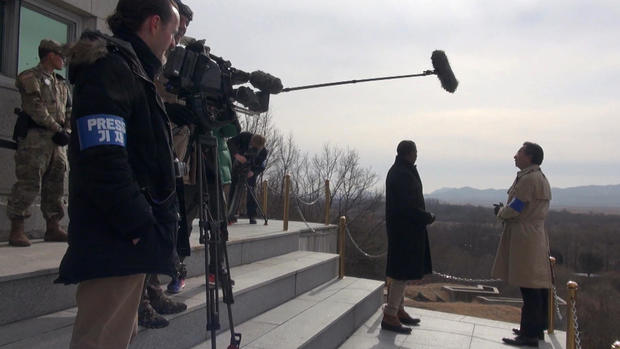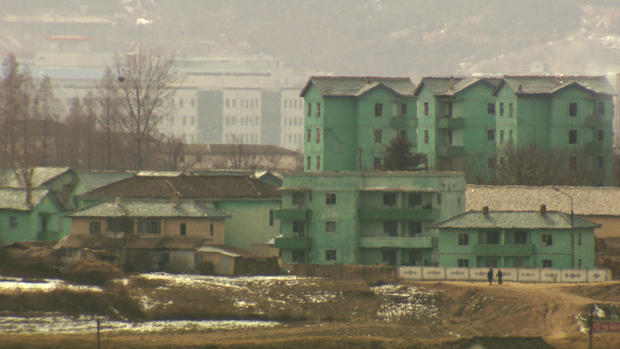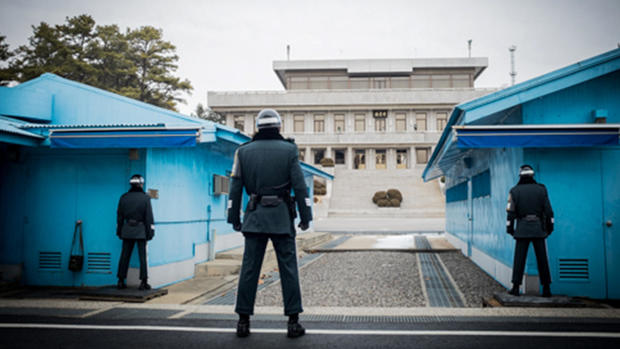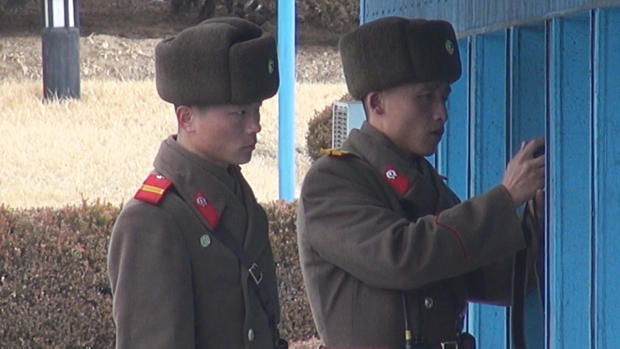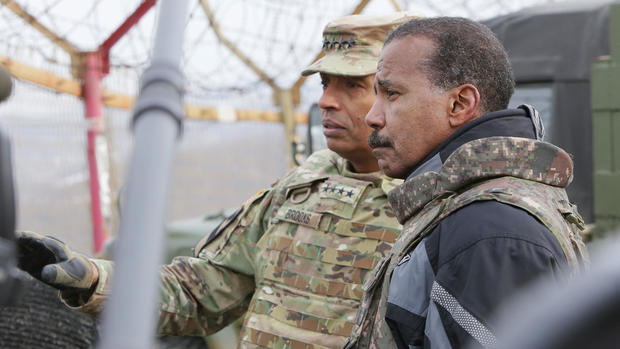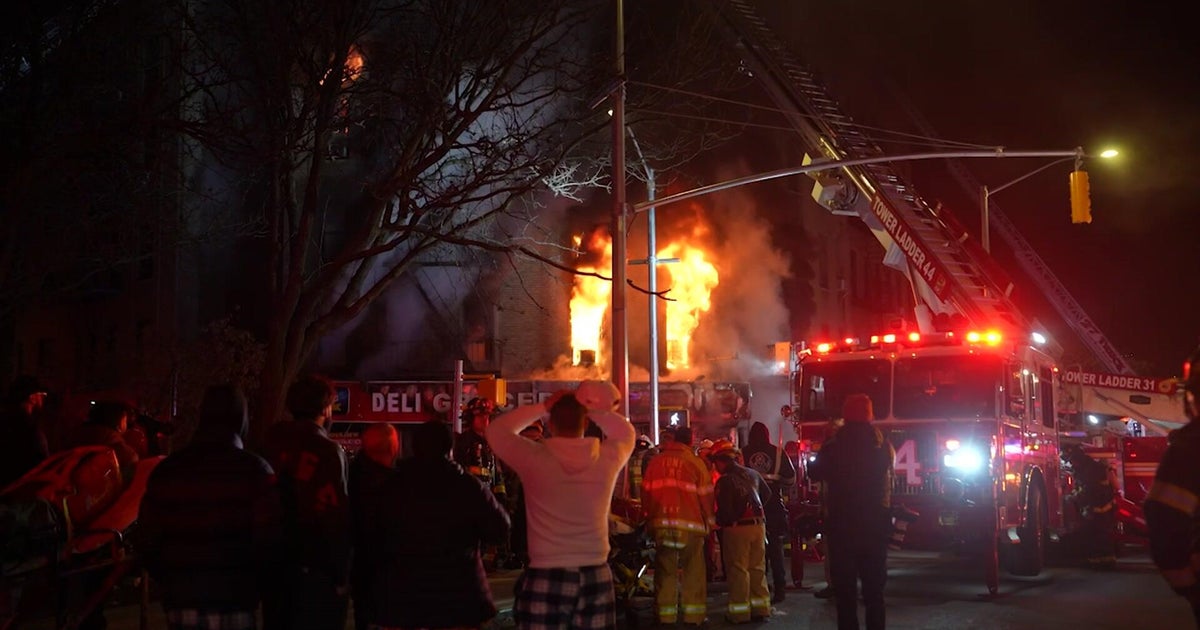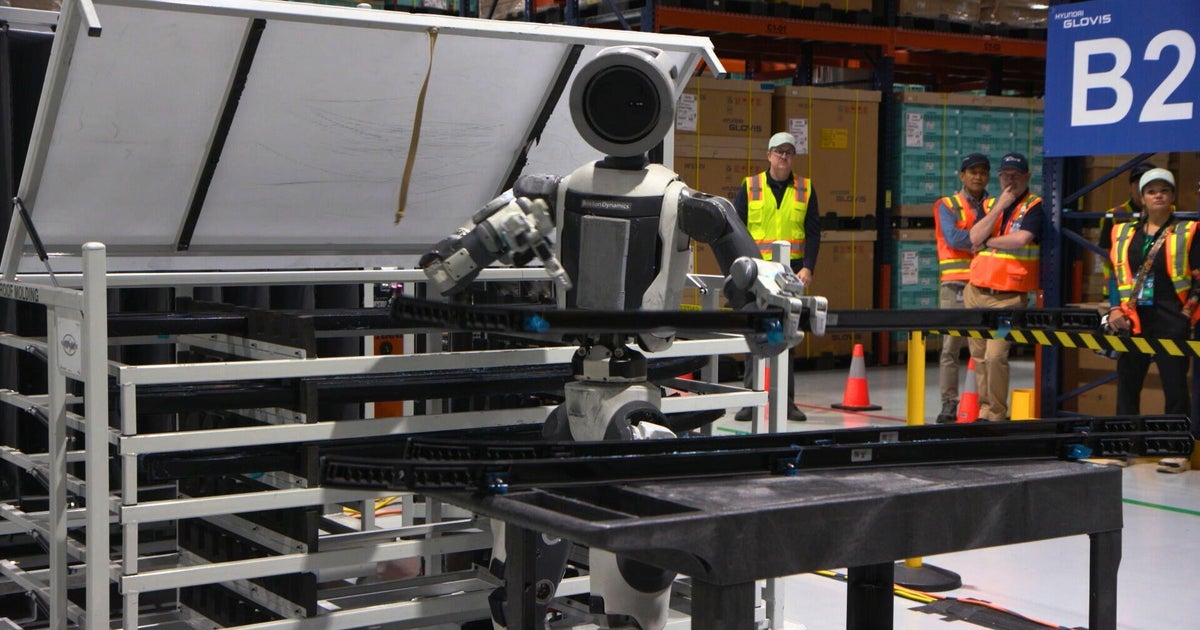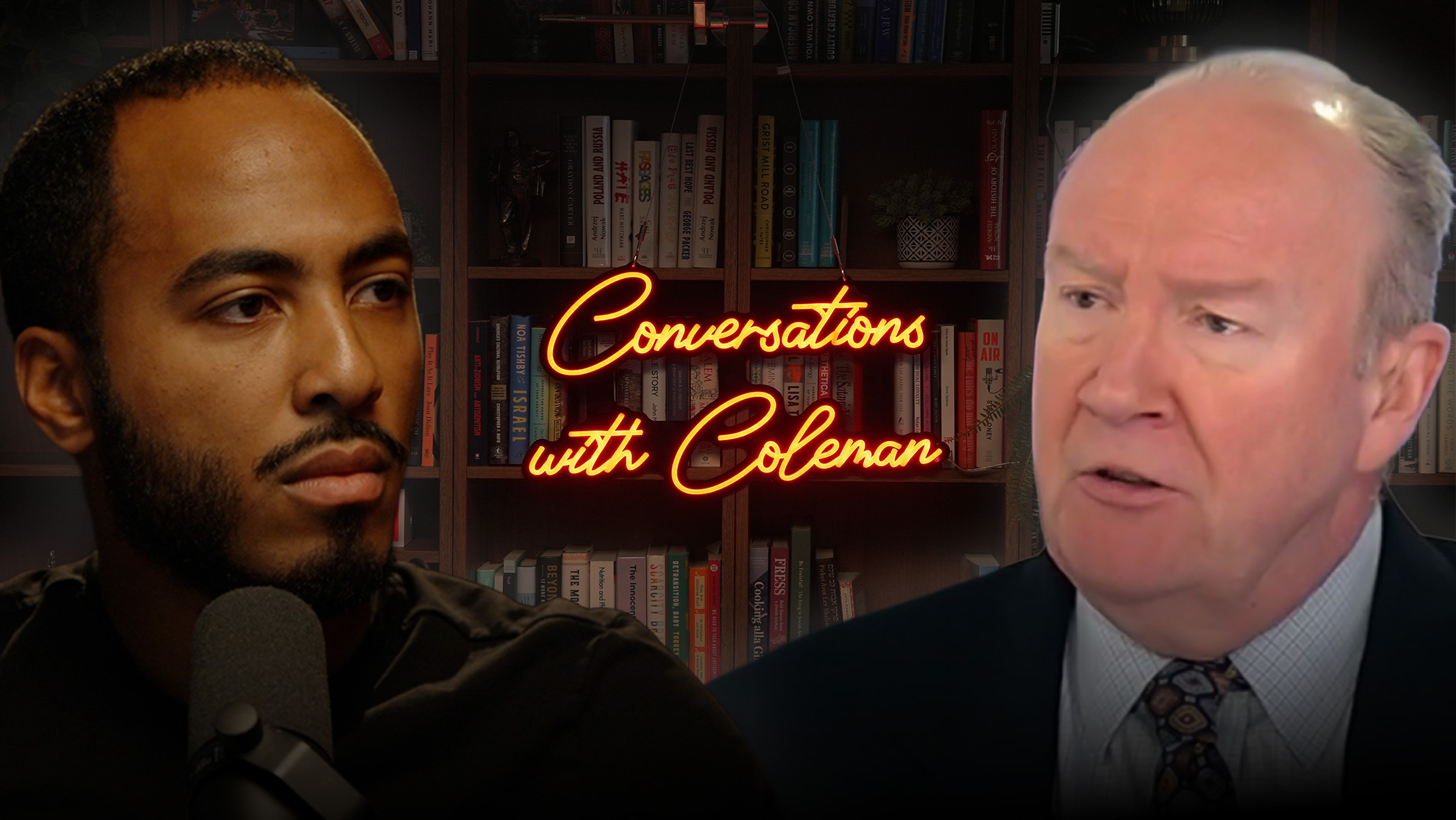60 Minutes' odd journey to North Korean border
"There are few places on the planet that are as creepy as the demilitarized zone that separates North Korea and South Korea," says 60 Minutes producer Guy Campanile. He and co-producer Andy Bast recently returned from the DMZ, where they traveled with correspondent Bill Whitaker to report their 60 Minutes story "The North Korean Threat."
"I've been reading about the DMZ all my life," says Campanile. "Going there was an entirely different experience." The producers described the experience as "surreal," comparing some areas of the DMZ to a Cold War theme park.
In one area, the 60 Minutes team could see a "fake" North Korean village in the distance-- a small gathering of blue buildings with no residents, akin to a Hollywood set.
Eerie nationalistic music blasted from the Potemkin village on loudspeakers. South Koreans, in turn, countered by blasting weather reports on loudspeakers directed at the North, creating a discordant clash of sound at the border line.
"It's one of the strangest things I've ever heard," says Bast. "You think to yourself, 'Where in the world am I?'"
Bast, Campanile, and Whitaker also traveled to Panmunjom, a small border village where the armistice that suspended the Korean War was signed in 1953. The war began in 1950 when the communist North invaded the South, and by the time it was over, 34,000 Americans had been killed in what amounted to a stalemate. On either side of Panmunjom's famous blue huts, soldiers from North and South Korea still stare each other down every day.
Oddly, the South Korean soldiers are required to wear big, dark sunglasses, says Bast. "We were told it's so they wouldn't be psychologically affected by the soldiers staring at them from the North," he explains.
"As bizarre as any of it feels, it is all very, very real." Andrew Bast, 60 Minutes producer
As the crew filmed an interview at Panmunjom, North Korean soldiers peeked out from behind a building's pillars, watching the 60 Minutes team's every move. "You're instructed not to make sudden movements. You're instructed not to make any kind of gestures that the North Korean soldiers on the other side of the border might deem as hostile," says Campanile.
At one point, two North Korean soldiers came running down the steps of a building with a camera in hand and began taking photos of the 60 Minutes team.
"We were told that what they often do is build a dossier on who was there," says Campanile. He surmised that there's a Bill Whitaker dossier somewhere in a file cabinet in Pyongyang.
The producers say they could feel the tension in the atmosphere at Panmunjom and at Guard Post 4, a citadel on the border where the 60 Minutes team met General Vincent Brooks, who leads the U.S. forces in Korea.
"Everything that happens close to that demilitarized zone has the potential to ignite perhaps one of the biggest conflicts of modern warfare," says Campanile.
According the 60 Minutes report, there are 10,000 pieces of North Korean artillery aimed at Seoul, the South Korean capital city with a surrounding population of 28 million. "Behind those are nuclear weapons which can be launched at South Korea at any given moment," says Bast. "As bizarre as any of it feels, it is all very, very real."
The producers say that if war were ever to break out in Korea, tens of thousands of people could be killed and the United States would probably be pulled into that war immediately.
"This thing has been going on since 1953," says Campanile. "History is alive and well, thank you very much, and is dangerous as ever."
This piece was originally published on Feb. 19, 2017 and produced by Lisa Orlando and Ann Silvio. It was edited by Lisa Orlando. Will Croxton, Rebecca Chertok Gonsalves, Sarah Shafer Prediger, and Susan Bieber contributed to this report.
